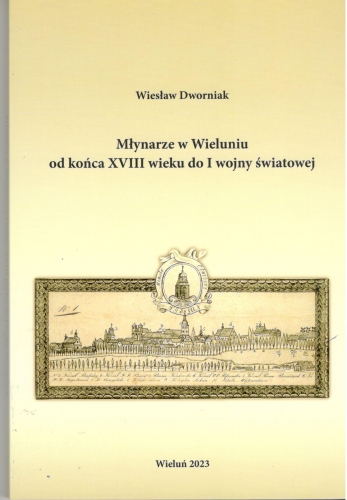Corporate financial communication in Poland
Companies listed in stock exchanges need to actively engage with investors but little research has been done into corporate communication practices in emerging markets. The goal of this book is to describe the textual communication between companies listed at the Warsaw Stock Exchange, equity analysts and investors. We present the results of three empirical studies of financial texts written in the Polish language: financial reports, letters to shareholders and sell-side analyst reports. The studies combine the methods of finance and language pragmatics to develop a rich picture of the causes and effects of financial communication.
We contribute this study of communication in the Polish language to the growing literature on the role of language and communication in the functioning of financial markets. The first chapter contains the theory and concepts of corporate disclosure. The second chapter presents the country setting and the information environment in Poland. The third chapter discusses the characteristics of language used in financial texts. The final chapter presents empirical research that we carried out using content analysis methods, experiments and market-based research methods.
The methodological workshop presented in this book can be used by students and researchers who study financial communication. The description of communication strategies can be useful for business people who work with companies in Poland.
,Companies listed in stock exchanges need to actively engage with investors but little research has been done into corporate communication practices in emerging markets. The goal of this book is to describe the textual communication between companies listed at the Warsaw Stock Exchange, equity analysts and investors. We present the results of three empirical studies of financial texts written in the Polish language: financial reports, letters to shareholders and sell-side analyst reports. The studies combine the methods of finance and language pragmatics to develop a rich picture of the causes and effects of financial communication.
We contribute this study of communication in the Polish language to the growing literature on the role of language and communication in the functioning of financial markets. The first chapter contains the theory and concepts of corporate disclosure. The second chapter presents the country setting and the information environment in Poland. The third chapter discusses the characteristics of language used in financial texts. The final chapter presents empirical research that we carried out using content analysis methods, experiments and market-based research methods.
The methodological workshop presented in this book can be used by students and researchers who study financial communication. The description of communication strategies can be useful for business people who work with companies in Poland.
,Companies listed in stock exchanges need to actively engage with investors but little research has been done into corporate communication practices in emerging markets. The goal of this book is to describe the textual communication between companies listed at the Warsaw Stock Exchange, equity analysts and investors. We present the results of three empirical studies of financial texts written in the Polish language: financial reports, letters to shareholders and sell-side analyst reports. The studies combine the methods of finance and language pragmatics to develop a rich picture of the causes and effects of financial communication.
We contribute this study of communication in the Polish language to the growing literature on the role of language and communication in the functioning of financial markets. The first chapter contains the theory and concepts of corporate disclosure. The second chapter presents the country setting and the information environment in Poland. The third chapter discusses the characteristics of language used in financial texts. The final chapter presents empirical research that we carried out using content analysis methods, experiments and market-based research methods.
The methodological workshop presented in this book can be used by students and researchers who study financial communication. The description of communication strategies can be useful for business people who work with companies in Poland.
,Companies listed in stock exchanges need to actively engage with investors but little research has been done into corporate communication practices in emerging markets. The goal of this book is to describe the textual communication between companies listed at the Warsaw Stock Exchange, equity analysts and investors. We present the results of three empirical studies of financial texts written in the Polish language: financial reports, letters to shareholders and sell-side analyst reports. The studies combine the methods of finance and language pragmatics to develop a rich picture of the causes and effects of financial communication.
We contribute this study of communication in the Polish language to the growing literature on the role of language and communication in the functioning of financial markets. The first chapter contains the theory and concepts of corporate disclosure. The second chapter presents the country setting and the information environment in Poland. The third chapter discusses the characteristics of language used in financial texts. The final chapter presents empirical research that we carried out using content analysis methods, experiments and market-based research methods.
The methodological workshop presented in this book can be used by students and researchers who study financial communication. The description of communication strategies can be useful for business people who work with companies in Poland.
,Companies listed in stock exchanges need to actively engage with investors but little research has been done into corporate communication practices in emerging markets. The goal of this book is to describe the textual communication between companies listed at the Warsaw Stock Exchange, equity analysts and investors. We present the results of three empirical studies of financial texts written in the Polish language: financial reports, letters to shareholders and sell-side analyst reports. The studies combine the methods of finance and language pragmatics to develop a rich picture of the causes and effects of financial communication.
We contribute this study of communication in the Polish language to the growing literature on the role of language and communication in the functioning of financial markets. The first chapter contains the theory and concepts of corporate disclosure. The second chapter presents the country setting and the information environment in Poland. The third chapter discusses the characteristics of language used in financial texts. The final chapter presents empirical research that we carried out using content analysis methods, experiments and market-based research methods.
The methodological workshop presented in this book can be used by students and researchers who study financial communication. The description of communication strategies can be useful for business people who work with companies in Poland.
,Companies listed in stock exchanges need to actively engage with investors but little research has been done into corporate communication practices in emerging markets. The goal of this book is to describe the textual communication between companies listed at the Warsaw Stock Exchange, equity analysts and investors. We present the results of three empirical studies of financial texts written in the Polish language: financial reports, letters to shareholders and sell-side analyst reports. The studies combine the methods of finance and language pragmatics to develop a rich picture of the causes and effects of financial communication.
We contribute this study of communication in the Polish language to the growing literature on the role of language and communication in the functioning of financial markets. The first chapter contains the theory and concepts of corporate disclosure. The second chapter presents the country setting and the information environment in Poland. The third chapter discusses the characteristics of language used in financial texts. The final chapter presents empirical research that we carried out using content analysis methods, experiments and market-based research methods.
The methodological workshop presented in this book can be used by students and researchers who study financial communication. The description of communication strategies can be useful for business people who work with companies in Poland.
,Companies listed in stock exchanges need to actively engage with investors but little research has been done into corporate communication practices in emerging markets. The goal of this book is to describe the textual communication between companies listed at the Warsaw Stock Exchange, equity analysts and investors. We present the results of three empirical studies of financial texts written in the Polish language: financial reports, letters to shareholders and sell-side analyst reports. The studies combine the methods of finance and language pragmatics to develop a rich picture of the causes and effects of financial communication.
We contribute this study of communication in the Polish language to the growing literature on the role of language and communication in the functioning of financial markets. The first chapter contains the theory and concepts of corporate disclosure. The second chapter presents the country setting and the information environment in Poland. The third chapter discusses the characteristics of language used in financial texts. The final chapter presents empirical research that we carried out using content analysis methods, experiments and market-based research methods.
The methodological workshop presented in this book can be used by students and researchers who study financial communication. The description of communication strategies can be useful for business people who work with companies in Poland.
,Companies listed in stock exchanges need to actively engage with investors but little research has been done into corporate communication practices in emerging markets. The goal of this book is to describe the textual communication between companies listed at the Warsaw Stock Exchange, equity analysts and investors. We present the results of three empirical studies of financial texts written in the Polish language: financial reports, letters to shareholders and sell-side analyst reports. The studies combine the methods of finance and language pragmatics to develop a rich picture of the causes and effects of financial communication.
We contribute this study of communication in the Polish language to the growing literature on the role of language and communication in the functioning of financial markets. The first chapter contains the theory and concepts of corporate disclosure. The second chapter presents the country setting and the information environment in Poland. The third chapter discusses the characteristics of language used in financial texts. The final chapter presents empirical research that we carried out using content analysis methods, experiments and market-based research methods.
The methodological workshop presented in this book can be used by students and researchers who study financial communication. The description of communication strategies can be useful for business people who work with companies in Poland.
,Companies listed in stock exchanges need to actively engage with investors but little research has been done into corporate communication practices in emerging markets. The goal of this book is to describe the textual communication between companies listed at the Warsaw Stock Exchange, equity analysts and investors. We present the results of three empirical studies of financial texts written in the Polish language: financial reports, letters to shareholders and sell-side analyst reports. The studies combine the methods of finance and language pragmatics to develop a rich picture of the causes and effects of financial communication.
We contribute this study of communication in the Polish language to the growing literature on the role of language and communication in the functioning of financial markets. The first chapter contains the theory and concepts of corporate disclosure. The second chapter presents the country setting and the information environment in Poland. The third chapter discusses the characteristics of language used in financial texts. The final chapter presents empirical research that we carried out using content analysis methods, experiments and market-based research methods.
The methodological workshop presented in this book can be used by students and researchers who study financial communication. The description of communication strategies can be useful for business people who work with companies in Poland.
,Companies listed in stock exchanges need to actively engage with investors but little research has been done into corporate communication practices in emerging markets. The goal of this book is to describe the textual communication between companies listed at the Warsaw Stock Exchange, equity analysts and investors. We present the results of three empirical studies of financial texts written in the Polish language: financial reports, letters to shareholders and sell-side analyst reports. The studies combine the methods of finance and language pragmatics to develop a rich picture of the causes and effects of financial communication.
We contribute this study of communication in the Polish language to the growing literature on the role of language and communication in the functioning of financial markets. The first chapter contains the theory and concepts of corporate disclosure. The second chapter presents the country setting and the information environment in Poland. The third chapter discusses the characteristics of language used in financial texts. The final chapter presents empirical research that we carried out using content analysis methods, experiments and market-based research methods.
The methodological workshop presented in this book can be used by students and researchers who study financial communication. The description of communication strategies can be useful for business people who work with companies in Poland.
,Companies listed in stock exchanges need to actively engage with investors but little research has been done into corporate communication practices in emerging markets. The goal of this book is to describe the textual communication between companies listed at the Warsaw Stock Exchange, equity analysts and investors. We present the results of three empirical studies of financial texts written in the Polish language: financial reports, letters to shareholders and sell-side analyst reports. The studies combine the methods of finance and language pragmatics to develop a rich picture of the causes and effects of financial communication.
We contribute this study of communication in the Polish language to the growing literature on the role of language and communication in the functioning of financial markets. The first chapter contains the theory and concepts of corporate disclosure. The second chapter presents the country setting and the information environment in Poland. The third chapter discusses the characteristics of language used in financial texts. The final chapter presents empirical research that we carried out using content analysis methods, experiments and market-based research methods.
The methodological workshop presented in this book can be used by students and researchers who study financial communication. The description of communication strategies can be useful for business people who work with companies in Poland.
,Companies listed in stock exchanges need to actively engage with investors but little research has been done into corporate communication practices in emerging markets. The goal of this book is to describe the textual communication between companies listed at the Warsaw Stock Exchange, equity analysts and investors. We present the results of three empirical studies of financial texts written in the Polish language: financial reports, letters to shareholders and sell-side analyst reports. The studies combine the methods of finance and language pragmatics to develop a rich picture of the causes and effects of financial communication.
We contribute this study of communication in the Polish language to the growing literature on the role of language and communication in the functioning of financial markets. The first chapter contains the theory and concepts of corporate disclosure. The second chapter presents the country setting and the information environment in Poland. The third chapter discusses the characteristics of language used in financial texts. The final chapter presents empirical research that we carried out using content analysis methods, experiments and market-based research methods.
The methodological workshop presented in this book can be used by students and researchers who study financial communication. The description of communication strategies can be useful for business people who work with companies in Poland.
,Companies listed in stock exchanges need to actively engage with investors but little research has been done into corporate communication practices in emerging markets. The goal of this book is to describe the textual communication between companies listed at the Warsaw Stock Exchange, equity analysts and investors. We present the results of three empirical studies of financial texts written in the Polish language: financial reports, letters to shareholders and sell-side analyst reports. The studies combine the methods of finance and language pragmatics to develop a rich picture of the causes and effects of financial communication.
We contribute this study of communication in the Polish language to the growing literature on the role of language and communication in the functioning of financial markets. The first chapter contains the theory and concepts of corporate disclosure. The second chapter presents the country setting and the information environment in Poland. The third chapter discusses the characteristics of language used in financial texts. The final chapter presents empirical research that we carried out using content analysis methods, experiments and market-based research methods.
The methodological workshop presented in this book can be used by students and researchers who study financial communication. The description of communication strategies can be useful for business people who work with companies in Poland.
,Companies listed in stock exchanges need to actively engage with investors but little research has been done into corporate communication practices in emerging markets. The goal of this book is to describe the textual communication between companies listed at the Warsaw Stock Exchange, equity analysts and investors. We present the results of three empirical studies of financial texts written in the Polish language: financial reports, letters to shareholders and sell-side analyst reports. The studies combine the methods of finance and language pragmatics to develop a rich picture of the causes and effects of financial communication.
We contribute this study of communication in the Polish language to the growing literature on the role of language and communication in the functioning of financial markets. The first chapter contains the theory and concepts of corporate disclosure. The second chapter presents the country setting and the information environment in Poland. The third chapter discusses the characteristics of language used in financial texts. The final chapter presents empirical research that we carried out using content analysis methods, experiments and market-based research methods.
The methodological workshop presented in this book can be used by students and researchers who study financial communication. The description of communication strategies can be useful for business people who work with companies in Poland.
,Companies listed in stock exchanges need to actively engage with investors but little research has been done into corporate communication practices in emerging markets. The goal of this book is to describe the textual communication between companies listed at the Warsaw Stock Exchange, equity analysts and investors. We present the results of three empirical studies of financial texts written in the Polish language: financial reports, letters to shareholders and sell-side analyst reports. The studies combine the methods of finance and language pragmatics to develop a rich picture of the causes and effects of financial communication.
We contribute this study of communication in the Polish language to the growing literature on the role of language and communication in the functioning of financial markets. The first chapter contains the theory and concepts of corporate disclosure. The second chapter presents the country setting and the information environment in Poland. The third chapter discusses the characteristics of language used in financial texts. The final chapter presents empirical research that we carried out using content analysis methods, experiments and market-based research methods.
The methodological workshop presented in this book can be used by students and researchers who study financial communication. The description of communication strategies can be useful for business people who work with companies in Poland.
| Księgarnia internetowa "booknet.net.pl" ul.Kaliska 12 98-300 Wieluń |
Godziny otwarcia: pon-pt: 9.00-17.00 w soboty 9.00-13.00 |
Dane kontaktowe: e-mail: info@booknet.net.pl e-mail: info@booknet.net.pl
|
































































































